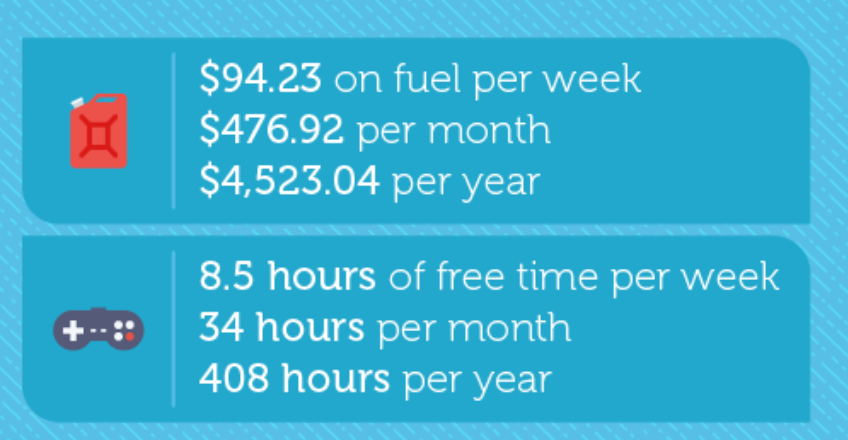Benefits of Not Commuting to Work
- CtoC Finance

- Aug 3, 2025
- 3 min read
Commuting to work has long been considered an essential part of our daily routine.
However, recent shifts toward remote work have challenged this norm, prompting us to reevaluate the impact of commuting.
Let's explore some of the benefits and counter-arguments regarding commuting.
1. Time Savings
Telecommuting allows you to save potentially large amounts of time each day by working from home and avoiding a commute.
Not having to drive or take public transportation also enables you to eliminate the possibility of unforeseen circumstances that might make you late or cause you to miss work altogether.
Some argue that the commute provides a mental transition between home and work.
It allows individuals to mentally prepare for the day ahead or wind down after work.
Without this buffer, the boundaries between work and personal life may blur, leading to potential burnout.
2. Improved Health and Well-Being
Physical Health:
Studies have found a direct correlation between average commute time and waist size.
Increased commute times mean less time moving, standing, or being active and more time being sedentary.
A sedentary lifestyle is one of the biggest risks for obesity and a host of other health problems.
Mental Health:
Commuting can be stressful, leading to anxiety, fatigue, and decreased job satisfaction.
Working remotely provides a calmer start to the day, allowing you to focus on tasks without the added stress of traffic or crowded public transportation.
Critics contend that the commute provides an opportunity for physical movement.
Walking to the bus stop or cycling to the train station contributes to daily exercise.
Without these incidental activities, remote workers may need to be more intentional about staying active.

3. Cost Savings
Transportation Expenses:
Not commuting means you save money on gas, public transportation fares, tolls, and parking fees.
Over time, these savings can add up significantly.
Wardrobe Costs:
Working from home allows for a more relaxed dress code.
Say goodbye to expensive work attire and dry-cleaning bills.
Your wardrobe becomes practical and comfortable.
Some argue that the cost of maintaining a home office—such as high-speed internet, ergonomic furniture, and utilities—offsets these savings.
Additionally, the absence of face-to-face interactions may hinder networking opportunities, potentially impacting career growth.
4. Environmental Impact
Reducing commuting contributes to a greener planet.
Fewer cars on the road mean reduced emissions, less traffic congestion, and a smaller carbon footprint.
By working remotely, you actively participate in environmental conservation.
Skeptics argue that the environmental impact of remote work depends on individual choices.
Some remote workers may increase energy consumption at home, offsetting the benefits.
Additionally, virtual meetings and digital collaboration tools have their own energy footprint.
Fewer commuters mean reduced traffic congestion and lower emissions.
Remote work contributes to cleaner air, less noise pollution, and decreased wear on infrastructure.
It aligns with sustainability goals and supports a greener planet.
5. Increased Productivity
Focused Work Environment:
Your home office is tailored to your needs.
Minimize distractions, personalize your space, and create an environment conducive to productivity. No more noisy coworkers or interruptions.
Flexibility:
Remote work allows you to adapt your schedule.
Early bird or night owl?
Customize your work hours to align with your peak productivity times.
Critics contend that the lack of social interaction may hinder creativity and innovation.
Serendipitous conversations in the office often lead to breakthroughs.
Additionally, remote work may exacerbate feelings of isolation, affecting mental well-being.

6. Work-Life Balance
Remote work blurs the boundaries between professional and personal life.
You gain more control over your time, fostering a healthier balance.
Family commitments, hobbies, and self-care become easier to integrate.
Detractors argue that the lack of physical separation between work and home may lead to overworking.
Without a clear boundary, employees may struggle to disconnect, impacting their mental health and relationships.
The Bottom Line
In conclusion, the benefits of not commuting are multifaceted, but they come with trade-offs.
As organizations embrace remote work, finding the right balance becomes crucial.
Whether you’re a proponent or skeptic, acknowledging both sides of the argument ensures a well-informed discussion.
What's your favorite part about working remotely?
Or, if you are full-time in the office, what do you love about your commute?
~To your wealth, and your health~




Comments